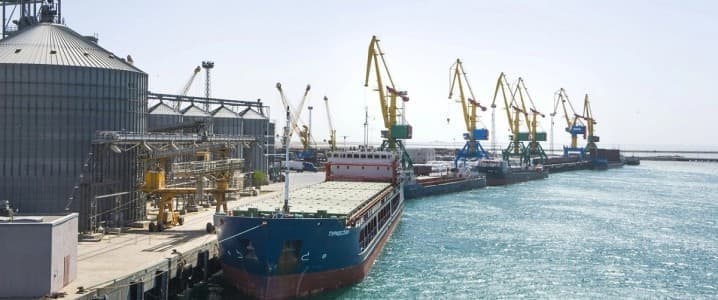Now Reading: What is a Logistics Carrier?
-
01
What is a Logistics Carrier?
What is a Logistics Carrier?

In business, logistics carriers are crucial as they can either make or break your operations. Imagine ordering heavy industrial equipment from another country for your manufacturing process – how will you get it to your company? A logistics carrier will handle the transportation of your machinery during shipping.
This article delves into the roles and significance of logistics carriers in heavy equipment shipping. It also outlines simple methods for verifying the legitimacy of a logistics carrier.
Logistics Carriers: Their Functions
A logistics carrier can be an individual or a company authorized to transport freight from one place to another. They offer multi-modal shipping services to ensure that goods are delivered quickly, safely, and cost-effectively through the most efficient route. Logistics carriers can utilize air, sea, or land transport depending on the delivery location. However, while they have various transportation options, businesses may only require specific modes. For example, local businesses may opt for over-the-road shipping.
Businesses can choose between two types of logistics carriers based on their supply chain requirements, each offering distinct advantages:
1. Common carrier: These logistics companies transport goods for individual entities or businesses and provide shipping services to the general public.
2. Contract carrier: These carriers have agreements with specific shippers or businesses to transport goods within a set timeframe based on contracts.
Selecting between a common or contract carrier depends on factors like shipping volume, company structure, and frequency. For high-volume freight, a contract carrier might be preferred, while businesses with occasional smaller shipments may find a common carrier more cost-effective.
The Importance of Logistics Carriers in Equipment Shipping
Selecting the right logistics carrier is crucial for smooth equipment shipping to ensure timely and safe delivery. Logistics carriers bring expertise and experience in handling the challenges of heavy and oversized machinery transportation. They possess specialized equipment and handling techniques for shipping heavy equipment efficiently from one location to another. Effective communication and transparency are maintained by logistics carriers, enabling companies to receive real-time updates on their shipments and address concerns promptly. These carriers also maintain top-quality fleets capable of handling equipment of various types, sizes, and weights, staying updated on the latest trends and technology for a seamless transportation process.
Evaluating the Legitimacy of a Logistics Carrier
Freight shipping can be complex and costly, necessitating the selection of a trustworthy logistics carrier for timely deliveries. Whether working through a freight broker or a third-party logistics provider (3PL), it is essential to conduct due diligence to ensure the carrier’s legitimacy. Steps to identify a legitimate carrier include:
– Conducting thorough online research to assess the carrier’s resources and capabilities.
– Verifying the carrier’s credentials and compliance with federal regulations by checking the Federal Motor Carrier Safety Administration (FMCSA) database.
– Confirming the carrier’s insurance coverage and liability limits to mitigate financial risks.
– Checking online reviews and testimonials to gauge the carrier’s reputation.
– Assessing the carrier’s expertise and experience in handling the specific type of freight.
In conclusion, logistics carriers play a critical role in ensuring the safe and timely transportation of goods through the most suitable and cost-effective modes. Understanding your business’s shipping needs is essential for selecting the right carrier. Trustworthy equipment shipping companies like Heavy Haulers can ease the burden of shipping freight efficiently.






